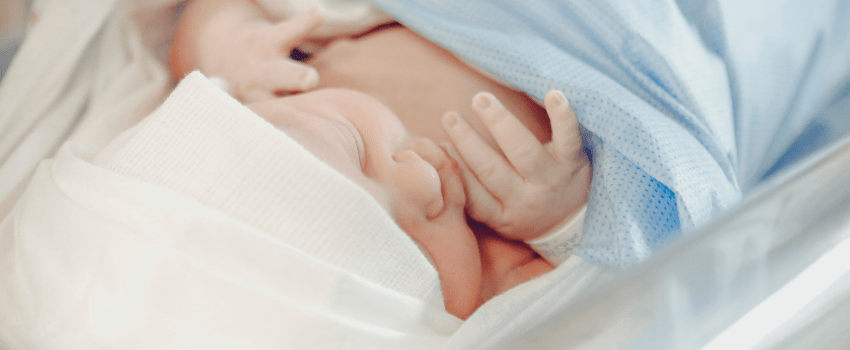
Birth trauma is something that comes up A LOT with my clients – either dealing with previous trauma or worrying about birth as a first-time mum.
It was actually my own birth experience that led me to teach my Birth Anxiety→ Baby Calm Programme. My first birth, although on paper was the quickest and the most ‘straightforward’ – it was actually more traumatic than my 2nd – which was a lot longer, and more complicated.
How and why???
It was the feeling of being in control. This is the first thing that comes out when I ask mums about their birth trauma and what caused it – they say:
‘I didn’t know what was happening to me’
‘I felt completely out of control’
‘I felt something was being done TO me’
‘I didn’t know what to do’
So although my 2nd birth looked more traumatic, it wasn’t because I had an incredible midwife who asked my consent on everything, who respected my wishes and spoke to me with kindness throughout. It made a world of difference.
We can’t control what’s going to happen during birth and the fear for so many is very real…but there are things you can do to help prevent trauma:
1. Understand how birth works
When you know what’s happening to you and you understand the birth process, this automatically helps you to feel in control. Whether you decide to do a course or read up on how birth works – this is so important to prevent birth trauma.
2. Language
I’m not going to go into oxytocin in huge detail, but in short, it’s the hormone that starts and helps labour to progress, as well as increasing beta-endorphins (natural pain-killer). Language is one thing that often gets forgotten when thinking about increasing oxytocin but it’s essential for you to feel safe and calm. We can’t control how healthcare professionals will speak to us, but having your birth-partner be aware so they can speak to you with kindness, and also encourage others around you, will make such a difference.
3. Educate your birth partner
We need someone who can support us during birth, someone who’s going to help us and guide us. I’ve found that a lot of mums who’ve suffered birth trauma said that their partner didn’t know what to do. To be honest, neither did my husband – he was incredible in the best way he could be because he didn’t know how else. Whether your birth partner is your husband, mum or sister – please, please, please ask them to understand the birth process so they can help you. Better yet, do an antenatal course with them so you’re both on the same page.
4. Control your breathing
We don’t always see how controlling your breathing can affect your birth, but honestly – if there’s anything that you do before birth – do this! Learning how to breathe properly and effectively will not only increase oxytocin, but it will make you feel in control and give your uterine muscles the oxygen it needs to work effectively. Not only will this shorten labour, but also prevent tearing – something so simple but incredibly effective – I know!
If you’ve not looked into hypnobirthing yet, it’s a combination of antenatal education, breathing techniques, visualisations, and scripts to help release the fear and give you back control and confidence. It’s definitely worth checking out to see if it’s for you.
5. Emotional support for previous trauma or anxiety
Finally, this is the part of pregnancy and motherhood that doesn’t tend to come into the equation. Whether it’s a previous experience, fear of birth or anxiety that you have, getting the emotional support you need is crucial. Talk to someone who has the tools to help you manage the anxiety as well as creating the space so you can let out all of that stuff going on around your head. It will mean you can let go of the fear, process your trauma and won’t need to carry it with you anymore.
If birth is still something you’re scared or anxious about and you want to do something about it – have a look at my Birth Anxiety 
